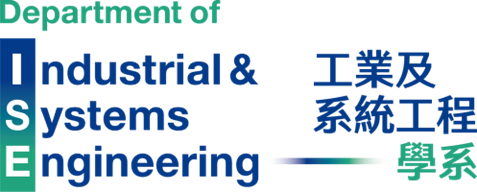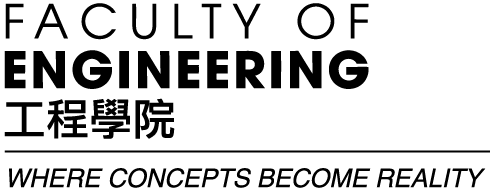From mechatronics to digital manufacturing, a roadway to a new era
Distinguished Research Seminar Series

-
Date
29 Oct 2024
-
Organiser
Department of Industrial and Systems Engineering, PolyU
-
Time
15:00 - 16:30
-
Venue
Online via Zoom
Speaker
Prof. Dominiek REYNAERTS
Remarks
Meeting link will be sent to successful registrants
Summary
In the past years many countries have put forward roadmaps towards digital manufacturing such as Industry4.0 in Germany, or Made in China 2025 and Internet Plus advanced Manufacturing in China. As such it is clear that we experience a digital industrial revolution. Rather than the exact number (3rd,4th,5th) of this revolution, it is more important to understand the associated paradigm shifts. The presentation will start with the introduction of some examples of mechatronic machinery where errors are compensated by real-time feedback through hardware sensing and actuation. Consecutively the shift is made to a key concept in digitalization which is the digital twin, whereby a software model is developed towards a very accurate and real-time representation of the physical world. Based on this, some key concepts for a road to digital manufacturing are presented. The focus is on digital manufacturing enabled by in-process monitoring and sensing. A first concepts is illustrated by information rich (micro)manufacturing. It is shown how the performance of micro-ECM, micro-milling and micro-EDM can be improved by process models, in-process metrology and feedback, and real-time process monitoring. In each of these cases, digital information in combination with real-time sensing allows to optimize process performance, in terms of accuracy, efficiency, etc. , leading in the end towards high-quality zero-defect manufacturing.
As a further concept it is shown that a higher level of digital integration, being a full manufacturing digital twin, allows to optimize machine tool performance in general and where this information is used to predict the quality of the produced part. In both examples, sensing and information processing allow to adapt the machine behavior, which can be regarded as a higher abstraction level digital twinning.
Finally it is illustrated how a manufacturing digital passport can open the road towards end-to-end digitalization. At this stage, also the full added value of digitalization is enabled. In the end digitizing requires substantial investments but connecting data over the full life cycle of a product allows to create multiple returns, in terms of asset management, product performance, productivity, lifecycle management, etc.
Finally some future perspectives will be discussed which could revolutionize manufacturing on the one hand, but which on the other hand should also be referred to the economic reality.
Keynote Speaker

Prof. Dominiek REYNAERTS
Professor
Department of Mechanical Engineering, KU Leuven
Professor Dominiek Reynaerts was born in Belgium, in 1963. He received his mechanical engineering degree from KU Leuven, Belgium, in 1986. In 1995, he obtained his Ph.D. degree in mechanical engineering, also from KU Leuven, and became Assistant Professor at KU Leuven in 1997. Since 2007 he is a Full Professor. He was chairman of the Dept. of Mechanical Engineering of KU Leuven from 2008 to 2017 and served again in this position from 2021 till 2024. Since 2014, he has been actively involved in the creation of the Flanders strategic research center “Flanders Make” where he is now a member of the corelab managing committee. He has been actively involved in the Leuven Nanocenter, a high-tech research facility that opened in 2015, where he acted as a member of the operational board. He is a visiting professor of Nanjing University of Aeronautics and Astronautics (NUAA) in Nanjing, China. He is a member of IEEE, ASME and euspen. Since 2023 he is an elected board member of the European society for precision engineering and nanotechnology (euspen). His research activities are in machine design and manufacturing with a focus on precision engineering, micromechanical systems, and actuators based on shape memory, piezo-electricity or soft pneumatics. Major applications of research are in precision instruments or machine tool components, medical robotics and instrumentation. In the past 10 years, 24 of his PhD students successfully defended their PhD. He has published 359 articles in international peer-reviewed journals ( 5300 citations, h-index: 38, WoS). He has been involved in 27 research, development, and industrial projects funded by national and international funding agencies.
You may also like














